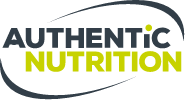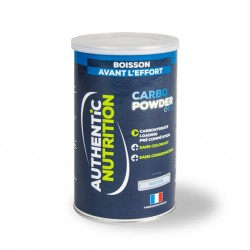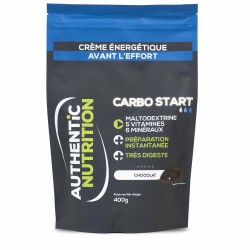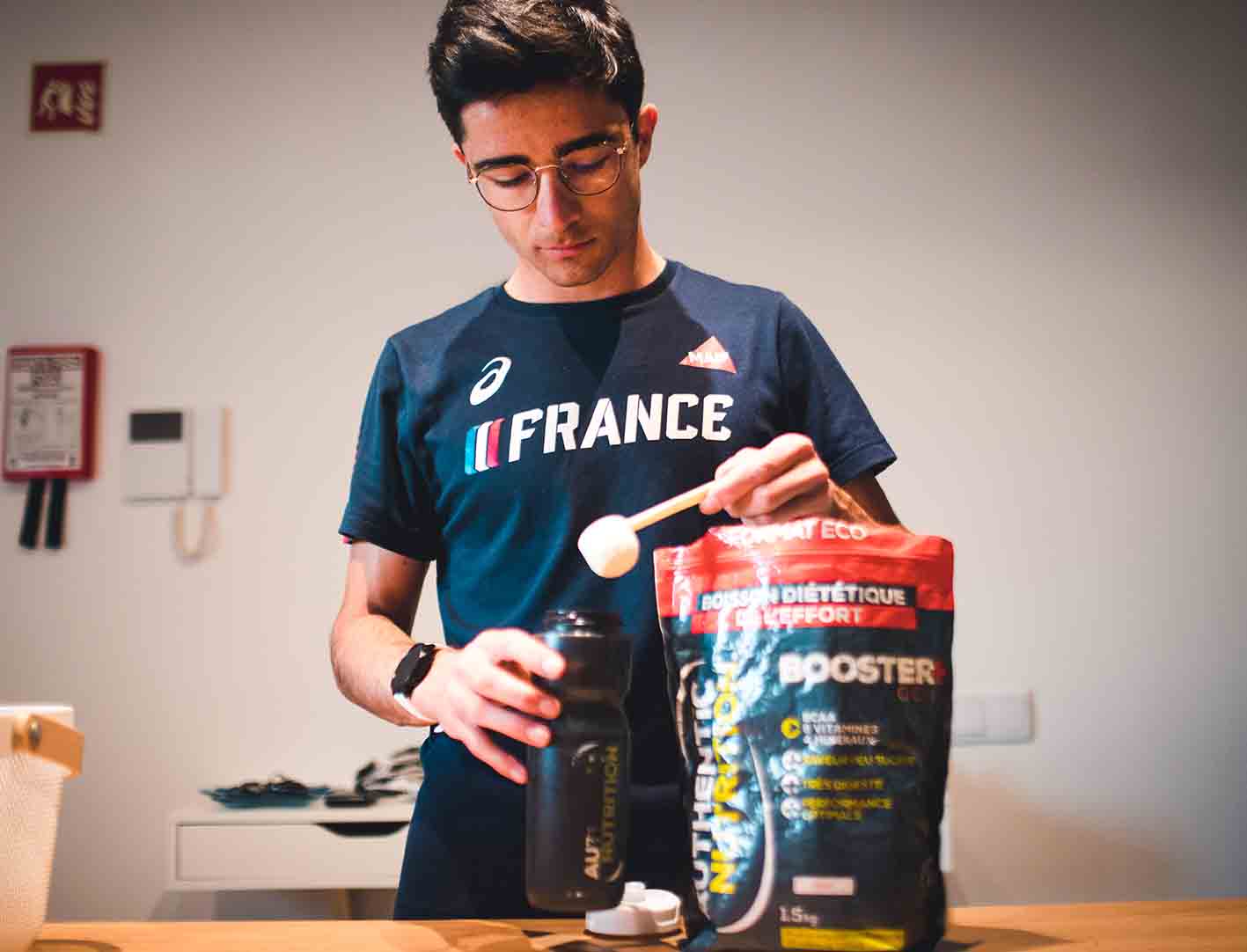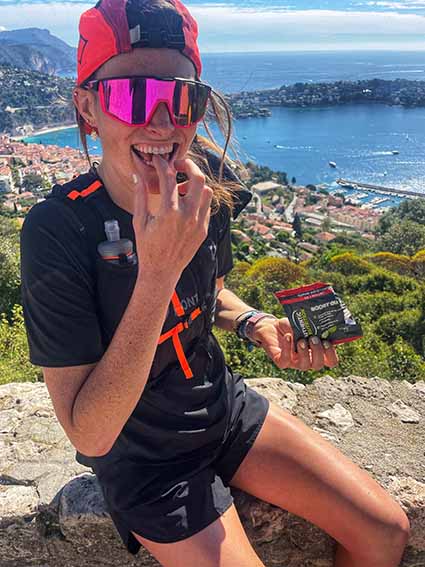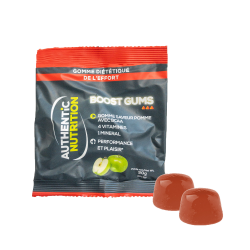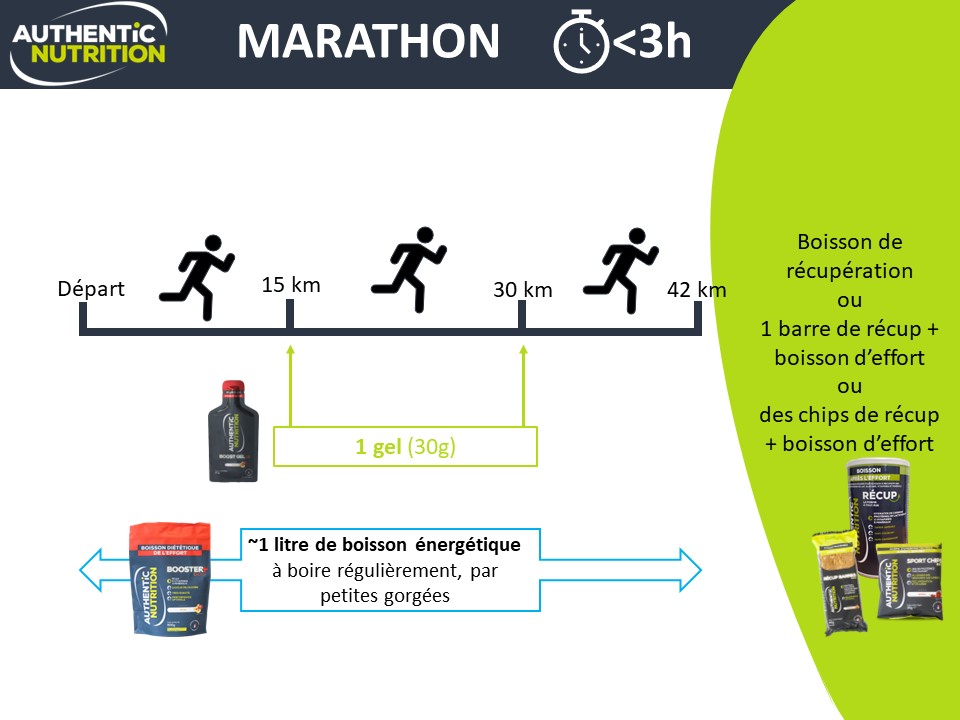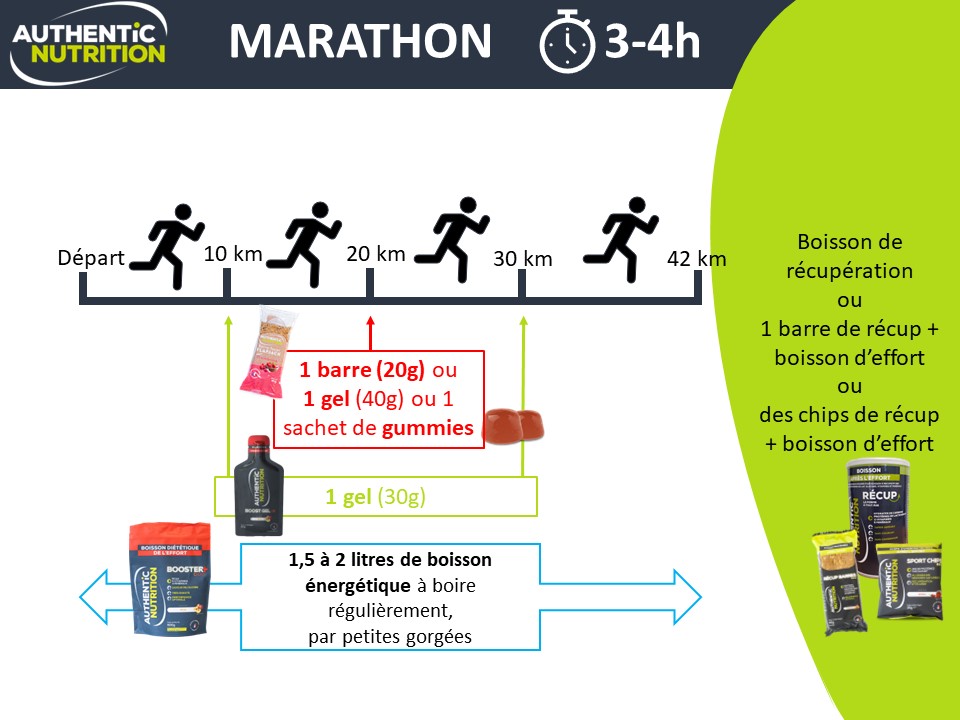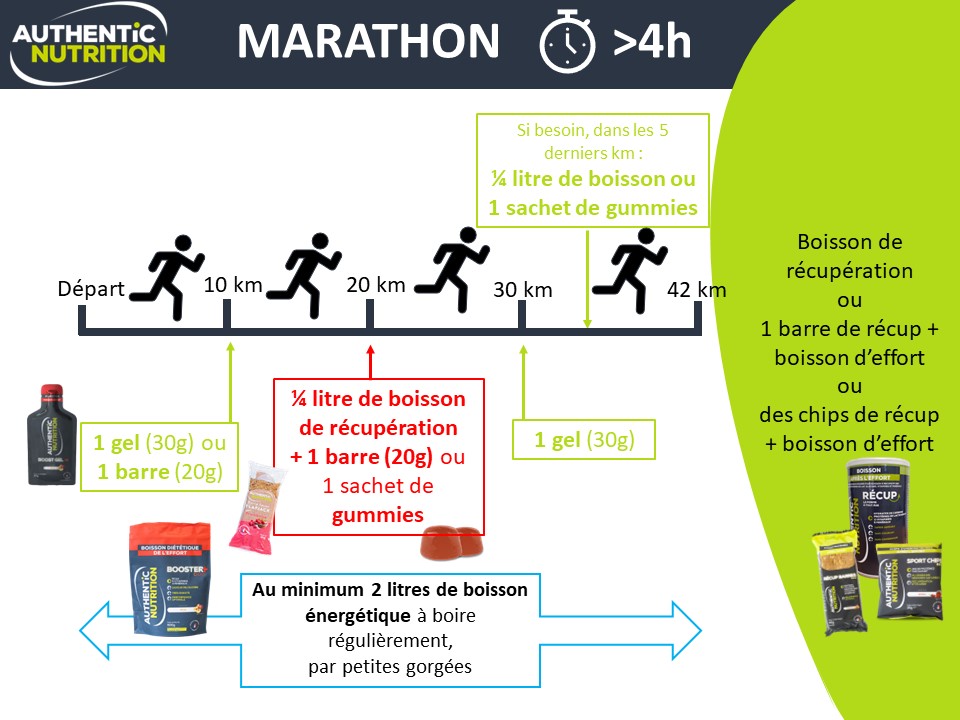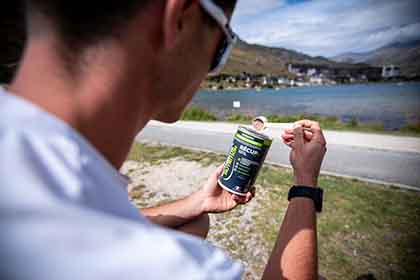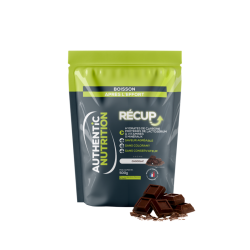Do you run (10 km, half marathon, marathon)? Check out our advice and nutritional plans tailored to each format to best prepare you from a nutritional and hydration perspective.
Nutritional advice before a run
A few days before your outing or your race (from D-4), it is advisable to avoid or reduce the consumption of certain foods such as:
• Foods rich in lipids which slow down gastric emptying.
Example: fatty meat and skin, cold cuts (sausage, rillettes, salami, pâté, etc.), pastries and viennoiseries, cooked saturated fats (butter, cream, coconut milk), dishes in fatty sauces, breadcrumbs and fried foods (breaded fish, fries, nuggets, etc.), pies and quiches.
• Foods that may cause intestinal gas.
Example: very mature cheese (like Livarot, Maroilles, etc.), game and other hung meats, smoked products (herring, ham, salmon, etc.), dried vegetables (lentils, chickpeas, flageolets, etc.), cabbage, salsify, asparagus, artichokes, onions, peppers (rich in insoluble fiber), sweetened laxative confectionery (chewing gum, candy).
• According to personal tolerance: strong meat (mutton, lamb) and offal, molluscs and crustaceans, certain vegetables (tomato, spinach, turnip, endive, mushroom, leek), oilseeds (walnuts, almonds, flax seeds), jam with pieces (fig, plum, rhubarb), strong coffee and tea, strong spices and herbs, certain condiments (capers, onions, pickles, etc.).
On the contrary, it is advisable to:
• Stay well hydrated and regularly.
• Eat carbohydrates in the form of food (pasta, rice, etc.) or replenishing drinks (Carbo Powder from D-4 to D-2) or energy drink (Booster+).
The maltodextrin contained in Carbo Powder allows you to replenish your glycogen stores to be at 200% on D-day. A refill is the carbohydrate equivalent of 2.3 kg of cooked pasta.
